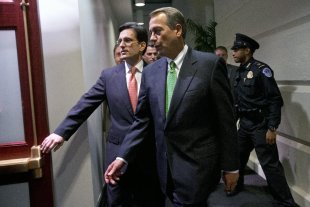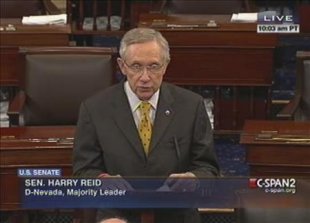YANGON, Myanmar (AP) — Myanmar's military acknowledged launching airstrikes against ethnic Kachin rebels in the north and said it captured a hilltop post from where the insurgents had attacked government supply convoys.
The statement broadcast on state television Wednesday contradicted government claims two days earlier that the military was not carrying out offensive air attacks on the Kachin, raising questions about how much control the elected government of reformist President Thein Sein has over the army.
The United States said Wednesday the use of air power in Kachin state was "extremely troubling." In Washington, State Department spokeswoman Victoria Nuland urged the government and the Kachin rebel group to cease their conflict and begin a real dialogue for peace.
U.N. Secretary-General Ban Ki-moon called on Myanmar's authorities "to desist from any action that could endanger the lives of civilians living in the area or further intensify the conflict in the region," U.N. spokesman Martin Nesirky said. Ban called on the government and rebels to work toward political reconciliation.
Myanmar state television, quoting the Defense Ministry, said the military on Sunday occupied a Kachin Independence Army hilltop post during a mopping-up operation of the area where attacks had been launched against supply convoys.
The government has been seeking to supply a base at Lajayang very close to KIA headquarters at Laiza, the rebel group's last major outpost.
The government delivered an ultimatum to the Kachin to clear a road by Christmas Day so it could supply its base. The Kachin rejected the ultimatum for fear of a government attack on their own outpost.
KIA spokesman La Nan charged Monday that the supplies being sent to government troops included ammunition as well as rice.
"We will obstruct any army convoy that carries arms and ammunition that will be used against us," he said. "This is the nature of war."
Each side blames the other for intensified fighting that began a little over a week ago.
The Kachin said Monday they were being attacked by helicopter gunships and fighter jets, but President's Office director Maj. Zaw Htay said the aircraft were being used mainly to supply government units whose access to supplies by road had been cut off by the Kachin guerrillas.
"During the attack, the army used air support," Wednesday's report said. It added that the military did not want to launch an offensive but attacked the outpost to maintain security and stability.
The report said government troops seized weapons including mortars, hand grenades, mines and 4,000 rounds of ammunition.
The military announcement highlights a seeming disconnect between the government and the military, which retains much power behind the scenes. An order late last year by Thein Sein to halt offensive operations against the Kachin was not honored in practice.
The Kachin, like Myanmar's other ethnic minorities, have long sought greater autonomy from the central government. They are the only major ethnic rebel group that has not reached a cease-fire agreement with Thein Sein's government, which came to power in 2011 after almost five decades of military rule.
His government has been hailed for instituting democratic reforms.
But tension with ethnic minorities, evidenced by the fighting with the Kachin, is considered a major long-term problem for the government and a threat to the nascent democracy.
Fighting erupted in Kachin state in June 2011 after the KIA refused to abandon a strategic base near a hydropower plant that is a joint venture with a Chinese company. There have been off-and-on skirmishes between the KIA and government troops, often escalating into serious bombardment by government troops.




